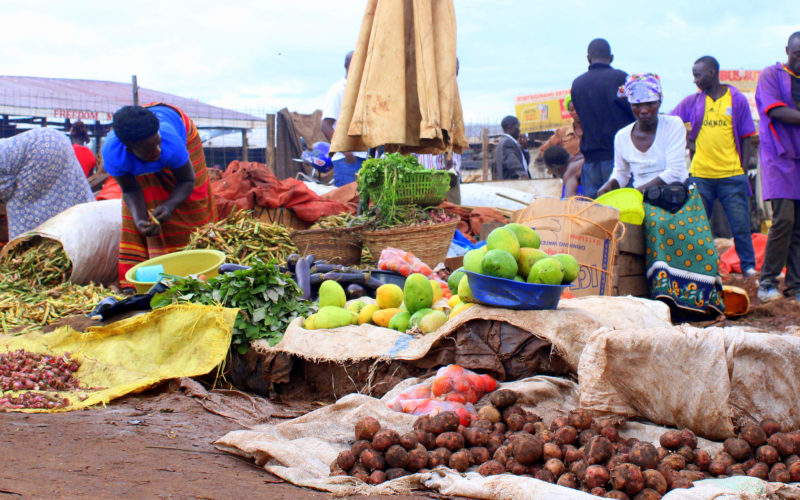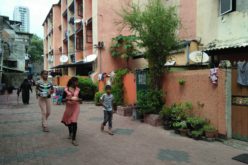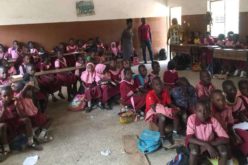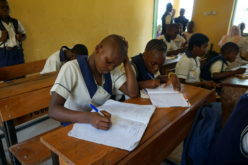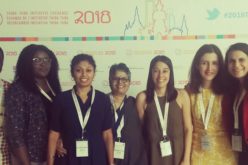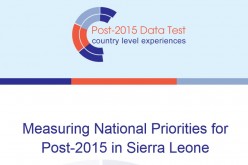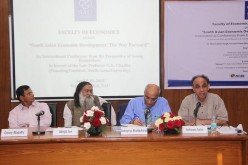by Brian Sserunjogi, Research Fellow EPRC
This blog highlights potential financing sources that Uganda can tap into for the implementation of the Sustainable Development Goals (SDGs) in the country.
Uganda is committed to the achievement of the goals enshrined in the 2030 Agenda for sustainable development. In fact, the country has already integrated the Sustainable Development Goals (SDGs) in its National Development frameworks, namely: in the Uganda Vision 2040, the Second National Development Plan (NDP II) and other sector development plans. However, planning is one thing, while implementation is another.
Despite efforts to integrate the SDGs into the national policy frameworks, target implementation is still slow. For example, a strategic review of SDG 2 (“zero hunger”) done by EPRC in 2017 indicated that the amount of people suffering of hunger in Uganda is still appallingly high. Four out of ten Ugandans are unable to meet the required daily dietary intake. Ugandan diets remain largely inadequate in quantity and quality. Moreover, a large proportion of Ugandan children go to school hungry every day. Uganda’s inability to meet the targets set out in SDG 2 shows that suitable financing for implementation is still lacking. While the country has made significant progress in funding the national budget from domestic resources (up to 80%), the ambitious SDGs targets present financial constraints. These targets require the country to mobilise additional domestic resources and other means of financing, beyond the traditional sources. Here are a few different options for doing that.
Boost domestic revenue mobilisation
Despite numerous past tax reforms, domestic revenue collection in Uganda is still below its potential. In fact, the country’s tax effort, which currently stands at 14% of its annual National Income (Gross Domestic Product) is less than the Sub Saharan African average of 16%.
This low domestic revenue collection effort could obstruct the achievement of the SDGs. To increase local revenue, the country needs to improve tax administration. This could be done by widening the taxpayers’ register and simplifying the tax system to encourage business formalization. Another tool would be to reduce compliance gaps, by targeting the highest risk sectors of the economy and commercial activities. And finally, a critical review of the generosity of tax exemptions is also necessary.
Expand the pension sector
Uganda’s pension sector is nascent and not fully exploited, despite its potential to mobilise private finances for funding the SDGs. According to the Uganda Retirement Benefits Regulatory Authority (URBRA), only 14% of Uganda’s working population is under some form of retirement benefit arrangement. This low social security coverage is aggravated by the large labour force in the informal sector, currently 80% of the population. In addition, the National Social Security Fund (NSSF) Act of 1985 specifies that only employers with more than five employees are mandated to make monthly contributions to the pension fund. This rigidity in the current NSSF law excludes a large section of workers from saving with the fund. To unlock the cheap savings from Uganda’s pension sector, the NSSF law needs to be amended. This would allow contributions from all employers, regardless of the number of employees. That way they can contribute to the pension fund. Another important step would be to diversify the pension fund’s product offerings to bring the self-employed and informal sector workers into the savings net.
Capitalise natural resources revenues
Uganda is endowed with 6.5 million barrels of crude oil that were recently discovered in the Albertine Graben. This finding places the country’s oil reserves as the fourth largest in Africa, according to the International Monetary Fund. While oil wealth provides opportunities for long-term financing of SDGs, the resource is vulnerable to price instability and depletion. Therefore, to benefit from existing vast mineral wealth as a financing source for SDGs, Uganda must focus on strengthening existing institutions, maintenance of rule of law and elimination of corruption. This will ensure that every citizen benefits from the country’s wealth. It would also contribute to securing sustainable and transformative gains from natural resources.
Mobilise remittances from the diaspora
Remittances are an additional potential source for mobilising private finances for the SGDs. According to the World Development Indicators Database, personal remittances to Uganda have consistently grown, from US$ 718 million in 2009 to US$ 1.2 billion in 2017. Despite this development, no established strategies have been put in place to exploit the full potential of this source of private finances. In order to do so, the Government, through the Central Bank, needs to conduct awareness campaigns at diaspora conferences and fora. This would increase understanding about the SDGs and its benefits among Ugandans abroad. It would also serve as a platform to provide information on key investment areas of interest to the diaspora.
Next steps
Given the rising public debt, decreasing foreign aid and competing investment demands, developing countries must find innovative and sustainable avenues to raise resources for the implementation of the SDGs. There is a need to prioritise domestic revenue mobilisation. To achieve this objective, efforts must be directed towards widening the tax base, extensively formalising the economy and reducing tax exemptions. Moreover, mobilising private funds is still underrated by the Government, despite the existence of policy and regulatory frameworks. Therefore, the Government must develop the nascent pension sector, mobilise remittances from the diaspora and build strong institutions to ensure a prudent use of natural resources’ wealth. With those measures in place, Uganda will be one step closer from fulfilling the 2030 Agenda on its soil.
About the author:
Brian Sserunjogi is a Research Fellow in the Macroeconomics department at the Economic Policy Research Centre at Makerere University, Uganda. His research focuses on macroeconomic analysis, public sector management, public expenditure analysis and local economic development and financial sector performance.
Southern Voice is a network of 50 think tanks from Asia, Africa and Latin America, researching on the UN Sustainable Development Goals (SDGs).
2,426 total views, 2 views today


